The National Institute on Minority Health and Health Disparities (NIMHD) at the National Institute on Health (NIH) announced the appointment of six new members to its advisory council.
Members of the council are drawn from the scientific, medical, and lay communities, so they offer diverse perspectives on minority health and health disparities. The NIMHD Council, which meets three times a year, advises the secretary of Health and Human Services and the directors of NIH and NIMHD on matters related to NIMHD’s mission. The council also conducts the second level of review of grant applications and cooperative agreements for research and training and recommends approval for projects that show promise of making valuable contributions to human knowledge.
Samuel E. Adunyah, Ph.D.
Meharry Medical College - Nashville, Tennessee
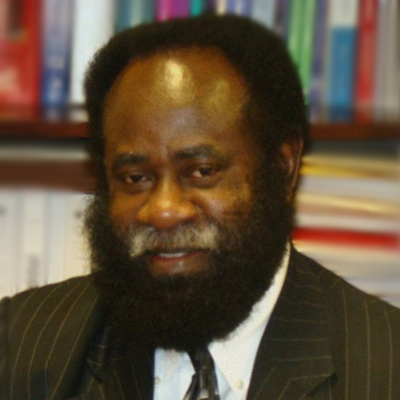 Dr. Samuel Adunyah is a distinguished chairman and tenured professor of the Department of Biochemistry, Cancer Biology, Neuroscience, and Pharmacology at Meharry Medical College and has worked at Meharry since 1991. During that time, Dr. Adunyah has served as the principal investigator for many grants, including the Meharry-Vanderbilt-Tennessee State University Cancer Partnership, the Meharry Translational Research Center grant, the NIMHD - Meharry Research Centers in Minority Institutions (RCMI) program grant, and the American Cancer Society (ACS) diversity grant.
Dr. Samuel Adunyah is a distinguished chairman and tenured professor of the Department of Biochemistry, Cancer Biology, Neuroscience, and Pharmacology at Meharry Medical College and has worked at Meharry since 1991. During that time, Dr. Adunyah has served as the principal investigator for many grants, including the Meharry-Vanderbilt-Tennessee State University Cancer Partnership, the Meharry Translational Research Center grant, the NIMHD - Meharry Research Centers in Minority Institutions (RCMI) program grant, and the American Cancer Society (ACS) diversity grant.
Under the RCMI program, Dr. Adunyah works with Dr. James Hildreth to direct a research program that addresses health disparities in cancer, cardiovascular diseases, diabetes, HIV/AIDS, and pregnancy disorders in African Americans. Dr. Adunyah’s research focuses on molecular signal transduction mechanisms of cytokines in the regulation of cancer cell growth, and the outcomes could contribute to clinical management of cancer, including breast cancer, prostate cancer, as well as hemoglobin disorders and myeloid dysplastic syndrome.
He is a member of the American Society for Biochemistry and Molecular Biology, and the American Association for Cancer Research. Dr. Adunyah received the Cancer Partnership Leadership Award from the Meharry-Vanderbilt Alliance in 2019. He received his Ph.D. in Biochemistry from the University of Louisville in 1987.
Jose A. Bauermeister, Ph.D., M.P.H.
University of Pennsylvania - Philadelphia, Pennsylvania
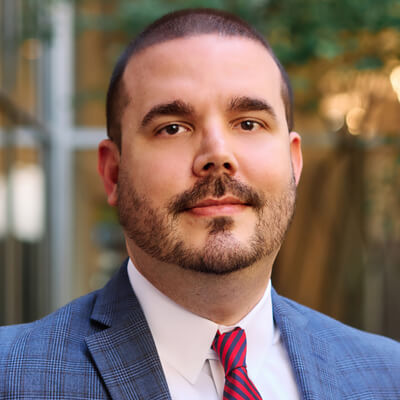 Dr. Jose A. Bauermeister is chair and a professor in the Department of Family and Community Health within the School of Nursing and a professor in the Department of Psychiatry within the Perelman School of Medicine at the University of Pennsylvania. He is the founding director of the Eidos LBGT+ Health Initiative, an alliance working to advance the wellbeing of the LBGT+ community. At the University of Michigan, Dr. Bauermeister founded and directed the Center for Sexuality and Health Disparities.
Dr. Jose A. Bauermeister is chair and a professor in the Department of Family and Community Health within the School of Nursing and a professor in the Department of Psychiatry within the Perelman School of Medicine at the University of Pennsylvania. He is the founding director of the Eidos LBGT+ Health Initiative, an alliance working to advance the wellbeing of the LBGT+ community. At the University of Michigan, Dr. Bauermeister founded and directed the Center for Sexuality and Health Disparities.
His interdisciplinary research integrates perspectives from public health, psychology, sexuality, and health communication. Dr. Bauermeister’s scholarship focuses on developing innovative, multilevel interventions for racial, ethnic, and sexual minority adolescents and young adults.
He is a member of the Penn Center for AIDS Research Executive Committee and holds leadership positions on the National Institutes of Health’s Adolescent Medicine Trials Network for HIV/AIDS Interventions. In addition, Dr. Bauermeister serves on the editorial boards of the Journal of Youth and Adolescence, the Archives of Sexual Behavior, the Journal of Community Psychology, and the American Journal of Community Psychology.
He received his M.P.H. and Ph.D. in Health Behavior and Health Education from the University of Michigan.
Valarie Blue Bird Jernigan, Dr.PH., M.P.H.
Oklahoma State University Center for Health Sciences - Tulsa, Oklahoma
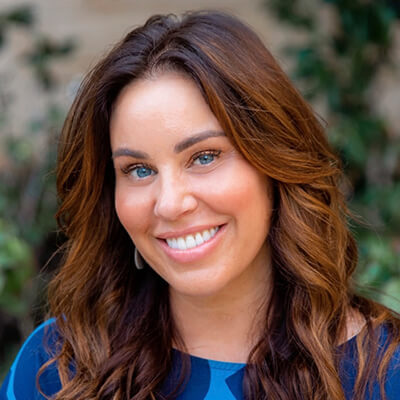 Dr. Valarie Blue Bird Jernigan is director of the Center for Indigenous Health Research and Policy and a professor in the Department of Rural Health within the Center for Health Sciences at Oklahoma State University. She has been the principal investigator for more than a dozen research studies focusing on improving Indigenous food environments through policy and systems interventions.
Dr. Valarie Blue Bird Jernigan is director of the Center for Indigenous Health Research and Policy and a professor in the Department of Rural Health within the Center for Health Sciences at Oklahoma State University. She has been the principal investigator for more than a dozen research studies focusing on improving Indigenous food environments through policy and systems interventions.
Dr. Jernigan directs the Center for Indigenous Innovation and Health Equity, an academic-community partnership with American Indian, Alaska Native, Native Hawaiian and Pacific Islanders to restore traditional foods and food practices to promote healthy diets and reduce chronic disease. In 2011, she became the inaugural chair of the National Cancer Institute’s Intervention Research to Improve Native Health initiative, a collaboration of NIH-funded investigators conducting intervention science research.
Dr. Jernigan is a member of the Canadian Institutes of Health Research College of Reviewers, the American Public Health Association, the Society for Public Health Educators, and the Society for Prevention Research. She is an editorial board member for the scientific journals Health Promotion Practice and Progress in Community Health Partnerships. Dr. Jernigan is a member of the CDC’s Fries Prize for Improving Health award selection jury. She also serves as a member of the USDA’s 2025 Dietary Guidelines for Americans Advisory Committee and is the first Indigenous person to serve on this committee. She is also a National Academies of Sciences Unequal Treatment in Healthcare Advisory Committee member.
Dr. Jernigan received her Dr.PH. from the University of California, Berkeley, and completed a postdoctoral fellowship in cardiovascular disease risk reduction at the Stanford Prevention Research Center at Stanford University School of Medicine. She is an enrolled citizen of the Choctaw Nation of Oklahoma.
Lisa M. Cacari Stone, Ph.D.
University of New Mexico - Albuquerque, New Mexico
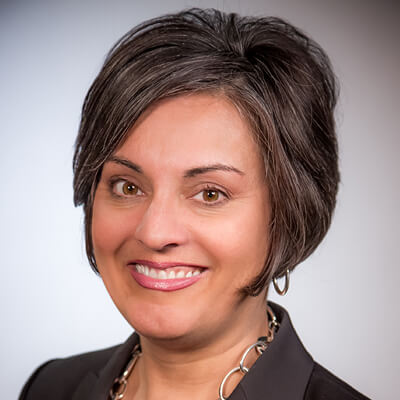 Dr. Lisa M. Cacari Stone is a professor in the College of Population Health at the University of New Mexico and director of the Transdisciplinary Research Equity and Engagement Center at the University of New Mexico Health Sciences Center.
Dr. Lisa M. Cacari Stone is a professor in the College of Population Health at the University of New Mexico and director of the Transdisciplinary Research Equity and Engagement Center at the University of New Mexico Health Sciences Center.
Her science and policy work are supplemented with 15 years of experience as a behavioral health specialist, state health care administrator, and licensed marriage and family therapist. Dr. Stone’s applied behavioral health work is complemented by training in health and social policy and in the social determinants of health at The Heller School at Brandeis University and the Harvard T.H. Chan School of Public Health.
She is an expert member of the research group with the U.S.-Mexico Border Health Commission, a member of the National Hispanic Science Network, a board member at the Prevention Institute (Oakland), and a previous WK Kellogg Fellow in Health Equity and Policy. Dr. Stone is a thought leader in health equity and has published numerous peer-reviewed policy briefs, public reports, and papers. In 2019, she received the Faculty Research Excellence Award in Population Health Science from the University of New Mexico Health Sciences Center.
Dr. Stone earned her Ph.D. in Health Policy from Brandeis University.
Kendrick E. Curry, Ph.D., M.Div.
The Pennsylvania Avenue Baptist Church - Washington, District of Columbia
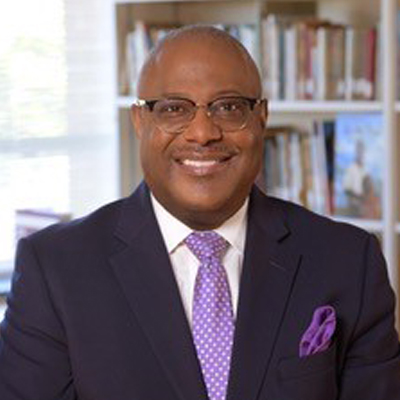 Rev. Dr. Kendrick E. Curry is senior pastor at The Pennsylvania Avenue Baptist Church. He is also co-chair of the NIH Community Engagement Alliance (CEAL). In this role, he is responsible for convening and coordinating the efforts of an alliance of 21 CEAL teams consisting of researchers and community-based organizations.
Rev. Dr. Kendrick E. Curry is senior pastor at The Pennsylvania Avenue Baptist Church. He is also co-chair of the NIH Community Engagement Alliance (CEAL). In this role, he is responsible for convening and coordinating the efforts of an alliance of 21 CEAL teams consisting of researchers and community-based organizations.
Pastor Curry worked in the corporate sector for Union Carbide Corporation (now Dow Chemical) and Eastman Kodak and in the government sector for Lawrence Livermore National Labs. Pastor Curry also worked in the nonprofit sector for the United Negro College Fund Special Programs Corporation, directing NASA’s Harriett G. Jenkins Predoctoral Fellowship program. In academia, he was associate research director and an adjunct faculty member at West Virginia State University.
Pastor Curry has pioneered community-relevant outreach ministries, including a mental-health day treatment program for Washington, D.C. residents in partnership with MBI Health Services and a faith-based telemedicine and e-health pilot with George Washington University Medical Faculty Associates. He is working as a community advisor with Howard University’s School of Psychiatry to curb opioid addiction. He is a small business owner creating and equipping a pipeline of leaders to advocate for communities and put East Washington, D.C. students’ needs first.
Pastor Curry received his Ph.D. in Chemical Engineering from the University of Michigan, his M.Div. from Virginia Union University, his B.S. from Prairie View A&M University in Chemical Engineering, and an Executive Certificate in Nonprofit Management from Georgetown University.
Frank J. Penedo, Ph.D.
University of Miami - Coral Gables, Florida
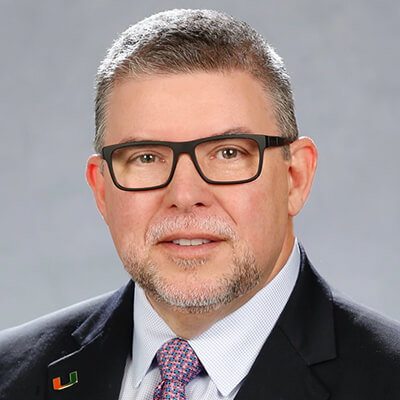 Dr. Frank J. Penedo is a professor in the Departments of Psychology and Medicine, Associate Director for Cancer Survivorship and Translational Behavioral Sciences and the inaugural holder of the Sylvester Dolphins Challenge Cancer Living Proof Endowed Chair in Cancer Survivorship at the University of Miami Sylvester Comprehensive Cancer Center. He received his Ph.D. in clinical health psychology at the University of Miami and completed his clinical residency at the University of Pittsburgh Western Psychiatric Institute in psychosocial oncology and behavioral medicine.
Dr. Frank J. Penedo is a professor in the Departments of Psychology and Medicine, Associate Director for Cancer Survivorship and Translational Behavioral Sciences and the inaugural holder of the Sylvester Dolphins Challenge Cancer Living Proof Endowed Chair in Cancer Survivorship at the University of Miami Sylvester Comprehensive Cancer Center. He received his Ph.D. in clinical health psychology at the University of Miami and completed his clinical residency at the University of Pittsburgh Western Psychiatric Institute in psychosocial oncology and behavioral medicine.
From 2000 until 2012, he held a faculty position in the Department of Psychology at the University of Miami. In 2012, he joined Northwestern University in Chicago and was awarded the inaugural Roswell Park endowed chair in Medical Social Sciences. There he served as Director of Survivorship and established the Cancer Survivorship Institute.
His research evaluates sociocultural, biobehavioral and psychosocial mechanisms underlying chronic diseases outcomes, and the efficacy of psychosocial interventions in improving health outcomes with a focus on translational and health disparities research. He served as President of the International Society of Behavioral Medicine, and his research and mentoring have been recognized by numerous awards from prestigious societies in his field.
He is an elected fellow of the Society of Behavioral Medicine and the Academy of Behavioral Medicine Research, served in numerous NIH study sections and is associate editor or referee for multiple journals. He is the author of more than 290 articles in chronic disease management and has been continuously funded by the NIH for the past 20 years.
Page published Feb. 22, 2024

